Boston College vs Boston University – if this is your question, we have just the comparison you need. First of all, they are not the same – as may appear from the name. In fact, they are competitors located in the Boston area, Massachusetts, on the eastern coast of the United States.
The healthy competition between these two world-class institutions is so popular among the student community that it has garnered multiple nicknames ranging from “the Green Line Rivalry” (named after the rail line of the Boston public transit system that connects the two schools) to the “Battle of Boston” and the “Battle of Commonwealth Avenue”.
As a prospective student looking at options, understanding the differences between these two schools is important. So, in this article, we have put together the similarities and differences that can help you decide which is better suited for you.
Boston College vs Boston University: A Quick Glance

Name:
BC and BU are separate private research universities offering bachelors’, masters’, and doctoral degrees to their students. BC began as an undergraduate liberal arts college and later added graduate programs and professional courses, fulfilling its charter as a university. It has retained “College” in its name to reflect its origins.
Academics:
BC, owing to its origins, is known for its liberal arts programs and its emphasis on ethics and social responsibility. It has fewer choices in courses when compared to BU (you still have over a 100 majors to choose from) but is ranked highly in both national and global lists. BU has a more diverse range of courses focusing on research and practical experience, especially through its numerous co-op programs. BU is also ranked highly, just a few places behind BC. If you are comparing acceptance rates, BC’s is around 16.7% while BU accepts about 14% of its applications.
Campus and Culture:
Nestled in a serene suburban area called Chestnut Hill, BC is about 6 miles from the main city of Boston. It has a designated campus, historic buildings and immense lawns that create a picturesque campus life. Founded by the Jesuits, the university fosters Catholic values of the Society of Jesus and a close-knit supportive environment. The student population distribution is skewed with a significantly higher number of undergraduates than most other research universities.
BU, on the other hand, is located in the heart of the city of Boston with the Charles River dividing the campus into two. It is an urban campus experience as the bustle of city life is integrated into its culture. Its location in the middle of the city also enables students to better explore co-ops, internships, and other social and cultural activities that take place in the city.
Here is a table that will help you distinguish between the two schools at a glance.
| Boston College | Boston University | |
| Established in | 1863 | 1839 |
| Ownership | Jesuit, Private, Not-for-Profit | Private, Not-for-Profit |
| Academics | ||
| Ranking (US News, 2024) | 39 | 43 |
| Bachelor’s Degree Majors | 100+ | 300+ |
| Number of Master’s Degrees Offered | Over 90 disciplines | About 225 |
| Popular Areas of Study |
|
|
| Fees and Scholarships | ||
| Average Tuition Fee for BA/ BSc per year | About $70,000 | About $66,700 |
| Average Tuition Fee for MA/ MS/ MBA per year | $34,000 – $70,000 | Around $67,000 |
| Average Financial Aid | $20,000 – $42,000 | $22,000 – $48,000 |
| Eligibility Criteria | ||
| Average High School GPA | 3.8 – 3.9 | 3.8 – 4.0 |
| Median SAT/ ACT requirement for admission | SAT: 1435 – 1540 ACT: 33 – 35 |
SAT: 1370 – 1480 ACT: 34 |
| English Language Requirements | TOEFL iBT: 100 IELTS: 7.5 |
TOEFL iBT: 90 – 100 IELTS: 7.5 |
| Acceptance Rate | ~ 16.7% | ~ 14% |
| Student Population | ||
| No. of undergraduate students in 2023 | 9,532 | 17,744 |
| No. of graduate students in 2023 | 5,574 | 18,476 |
| Average Starting Salary of Graduates | $67,000 | $49,000 – $84,000 (depending on the area of study) |
| Campus | ||
| Campus Location | Chestnut Hill, MA | Boston, MA |
| Campus Type | Suburban | Urban |
| Housing Options | Over 85% of students live on campus in one of the 29 designated residence halls. | Over 70% of undergraduates live on campus. Housing options include large apartments, brownstones, and houses in the student village |
Boston College vs Boston University: Academics

In the debate of BU vs BC, it is clear that both are prestigious institutions offering unique academic and socio-cultural experiences to its students. Boston College is a private Jesuit Catholic research university (despite being named “College”) that fosters a close-knit student environment in a serene campus located in the suburbs.
Boston University is a larger, more multicultural university space that is part of downtown Boston. It has a much larger student body and a rich array of extracurricular activities well-integrated to life in the city.
Courses in these two schools are offered by the 9 constituent schools of BC and the 20 schools and colleges of BU. In terms of sheer student population, BU is almost twice the size of BC and offers over double the number of degrees and courses.
The different courses at
Boston College
are offered by the following constituent schools
- Morrissey College of Arts and Sciences
- Boston College Law School
- Woods College of Advancing Studies
- School of Social Work
- Carroll School of Management
- Connell School of Nursing
- Lynch School of Education and Human Development
- Clough School of Theology and Ministry
- Messina College (for associate degree programmes)
The schools and colleges that constitute
Boston University
are
- Honors College
- School of Medicine
- College of Arts and Sciences
- College of Communication
- College of Engineering
- College of Fine Arts
- College of General Studies
- Faculty of Computing and Data Sciences
- School of Global Studies
- Graduate Medical Sciences
- Graduate School of Arts and Sciences
- School of Dental Medicine
- Questrom School of Business
- Metropolitan College & Extended Education
- Sargent College of Health and Rehabilitation Sciences
- School of Hospitality Administration
- School of Law
- School of Public Health
- School of Social Work
- School of Theology
- College of Education & Human Development
- Division of Military Education
Overall and Subject Rankings
| Boston College | Boston University |
| Overall Rank US News 2024: 39 | Overall Rank US News 2024: 43 |
| Times Higher Education WUR: 251-300 | Times Higher Education WUR: 78 |
| Subject and Other Ranking (Source: US News and THE) | |
| #7 in Finance #8 in Best Undergraduate Teaching #10 in Accounting, Analytics, Entrepreneurship, and Nursing #11 in Marketing #12 in Management #17 in Learning Communities #37 in Economics #41 in Undergraduate Research #46 in Most Innovative Schools #207 in Top Performers on Social Mobility |
#13 in Study Abroad #20 in Most Innovative Schools #25 in Best Value Schools #37 in Economics #41 in Clinical and Pre-clinical Health #46 in Best Undergraduate Engineering Programs #57 in Psychology #65 in Business #90 in Law #222 in Top Performers on Social Mobility |
What are the top three courses to study in Boston College?
1. Finance and Accounting

The Carroll School of Management of Boston College has been consistently ranked as one of the top ten schools in the US for undergraduate degrees in finance and accounting. Their courses prepare students to face head on the quantitative and analytical challenges of today’s world. Their faculty and the robust alumni network also help college students connect with professionals and organisations for internships and future employment opportunities.
Concentrations offered at the undergraduate level:
- Accounting
- Accounting for Finance and Consulting
- Business Analytics
- Finance
Graduate Programs:
- MS in Accounting
- MS in Finance
2. Economics

Ranked 37th in the nation, the Department of Economics of Boston College can be considered an intellectual leader in this field of study. The economics major provides an in-depth exploration of how economic systems work in the US and across the globe. Electives include money and banking, international trade and finance, public sector economics, economic development, capital markets, inequality, industrial organisation, environmental economics, and computational investing.
BC’s BA in Economics is also categorised as a STEM program, which allows you to apply for the 24-month STEM extension of F1 Optional Practical Training (OPT).
3. Biology

BC’s Department of Biology provides three undergraduate degrees that are highly sought after by applicants – B.S. in Biology, B.S. in Biochemistry and a B.A. in Biology. The Bachelor of Arts program gives you the flexibility to integrate the program with other areas, including law, ethics, history, sociology, computer science, and management. The BA degree also does not have the quantitative or chemistry requirements of the bachelor in science program. The B.S. program (also referred to as B.Sc.) also meets the preclinical or pre-dental requirements.
The Department of Biology also runs 16 active research labs with over $5 million in sponsored funding. Current research areas include cell and developmental biology, microbiology and immunobiology, and bioinformatics.
In addition to biology, the Connell School of Nursing is highly reputed for its undergraduate and professional programs in nursing. If you are looking at a career in nursing, then BC is the go-to option, since BU does not offer any nursing programmes.
What are the top courses to study at Boston University?
1. Business and Management

According to the rankings published by US News, BU’s Questrom School of Business is ranked 50th among 124 best business schools. Their award-winning curriculum is highly flexible, allowing students to tailor-fit their degrees to meet their career goals. The courses are taught through lectures, seminars, group discussions and numerous projects so that students learn the practical applications of formulating and analysing a business plan from the undergraduate level.
Courses offered:
- BSBA (Bachelor of Science in Business Administration)
- MBA
Joint degrees include
- MBA+ MS in Digital Technology
- MBA+ MA in International Relations
- MBA+ MA in Economics
- MBA+ JD
- MBA+ JD (3-Year Accelerated)
- MBA+ MS in Product Design & Manufacture
- Health Sector MBA + MD
- Health Sector MBA + MPH
- Social Impact MBA + MS in Energy & Environment
2. Engineering

BU’s engineering programs are one of the top 50 schools of engineering in the country and have a global reputation. Committed to a transformative approach and interdisciplinary thinking, the university’s Department of Engineering has created scholars and scientists who have become Fellows of AAA and Guggenheim.
Besides the numerous concentrations made available, undergraduate degrees in engineering are offered in
- Biomedical engineering
- Computer Engineering
- Electrical Engineering
- Mechanical Engineering
Graduate programs include:
- MEng/ MS in Biomedical Engineering
- MEng/ MS Material Science
- MEng Systems Engineering
- MS in Electrical and Computer Engineering
- MS in Mechanical Engineering
- MS in Robotics and Autonomous Systems
- MS/ MBA in Product Design and Manufacture
3. Psychology

Offering a combination of classroom learning and hands-on research, BU’s psychology major can open up careers in the fields of psychiatry, medicine, law, policy-making and other domains. The department’s research strength is tied with that of Cornell University. Undergraduate students are also given the choice to take up advanced coursework and participate in research conducted in the areas of Clinical Psychology, Child Development and Cognitive Neuroscience at BU.
Notable Faculty, Alumni and Research Facilities
Boston College
Motivated by the college’s motto, “Ever to Excel”, graduates from BC have gone on to become leaders in their respective fields. A long list of notable alumni include US Secretary of Energy, Senators, Governors, numerous CEOs, VPs, actors and film producers.
The college also has over 40 research centres and over $73 million in sponsored research grants, creating a research mindset among its students.
Boston University
A number of Nobel Laureates have either taught or studied at BU. This illustrious list includes
- Osamu Shimomura (Nobel Prize in Chemistry)
- Daniel Tsui (Nobel Prize in Physics)
- Derek Walcott (Nobel Prize in Literature)
- Elie Wiesel (Nobel Peace Prize)
- Sheldon Glashow (Nobel Prize in Physics)
- Saul Bellow (Nobel Prize in Literature)
- Martin Luther King Jr (Nobel Peace Prize)
- Oscar Arias Sánchez (Nobel Peace Prize)
Boston University supports and encourages every student’s desire to push the boundaries of their discipline. The university supports over 130 centres and institutes dedicated to research and has published over 7,600 research papers in 2023. A whopping $645.6 million was given as research awards in the financial year 2023.
What are some similarities between BU and BC?
Here are some points of commonality when looking at the academics in both these institutions.
- Both institutions maintain a very low student-faculty ratio of 10 or 11:1 and small class sizes.
- In both the institutions, students enrolled in undergraduate programs are not required to declare their major until the end of their sophomore year and try courses from across disciplines.
- Both institutions also have a mandatory core curriculum that requires all bachelor’s students to complete a minimum number of courses in humanities, physical sciences and the social sciences. The goal of this curriculum is to explore an interdisciplinary approach in any field of study that you will later choose.
- Both institutions are also members of the Boston Consortium which allows their students to register for one course per semester at other institutions including Brandeis University, Tufts, Northeastern, Hebrew College and a few specialised courses at MIT.
- Study abroad options are also highly popular in both these institutions of higher education. BC has over 70 partner institutions across the world while BU offers over 75 programs in over 20 countries.
Boston College vs Boston University: Fees and Scholarship Opportunities
As an international student, another important factor to consider while choosing a school is the finances involved. What is the tuition fee? What other costs are involved? What are the chances of getting a scholarship?

In this section, we try to answer some of these significant questions. The following table shows a comparative picture of both the Boston schools that will help you decide better.
| Boston College | Boston University | |
| Annual Tuition (Bachelor’s) | $69,400 | About $66,700 |
| Annual Tuition (Master’s) | $35,000 – $70,000 | $63,798 |
| MBA Tuition | $65,080 | $66,670 |
| Housing (yearly, room and board) | Around $18,500 | Around $19,000 |
| Scholarship Type | Primarily need-based* | Primarily need-based* |
| Average need-based grant | $46,777 | ~ $49,000 |
| Merit Scholarship | Gabelli Presidential Scholarship open to both home and international students who apply by the priority scholarship deadline of November 1.
Eligibility:
|
Eligibility:Academic excellence, leadership skills, community service and application essay. |
* NOTE: Need-based scholarships provided by federal and state reserves are not open to international students. Only those funded by the university or private parties are open to overseas students.
Boston College vs Boston University: Student Life and Post Graduation Opportunities

Besides academics and finance, let us look at some of the other factors that differentiate Boston College vs Boston University.
Campus
Boston College:
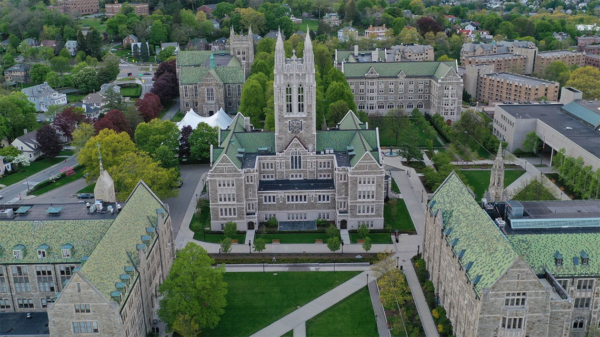
Source: Boston College
Located in Chestnut Hill, BC gives you a sense of a traditional, suburban campus. With its gothic towers and freshly mowed lawns, BC has a designated, enclosed campus of about 340 acres that helps foster a better sense of student community. Over 85% of students live in dorms on campus and eat at the residence halls, creating a small, student-centred world on campus.
The student body is relatively smaller, with a total of about 15,000 students. It has a tight-knit community and small classroom sizes but it also makes it less diverse when compared to BU.
Boston University:
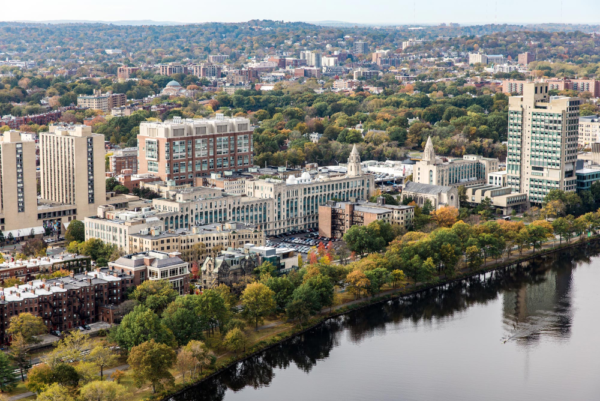
Source: Boston University
Situated in downtown Boston, the BU campus is well integrated into the bustle of the city. This 135-acre campus is divided into two by the Charles River. BU’s buildings are part of the city’s skyline. The main campus houses the academic and research buildings, while the other is allocated for housing and recreation.
With a total enrollment of over 37,000 students, the BU student population is over twice the size of BC. BU also has 5 times the faculty population of BC due to the higher number of courses and concentrations offered.
Despite the difference in sizes, both schools have dedicated student support service centres that support and guide their students, whether for academics, work, mental, health-related or any other needs.
Sports and other student activities
Both schools offer numerous recreation, fitness and student centres, and immense libraries for students to pursue their extracurricular and academic interests. BC hosts over 300 student clubs and student organizations, while BU has over 500. While both schools have Division I sports teams, Boston College has a deeper affiliation for football and hockey. Sports is a huge part of the campus culture at Boston College.
Internship Opportunities
Completing an internship during your study is a huge advantage, not only from a financial standpoint. You get to add professional experience to your resume and explore career options in the real world.
Boston College has a Career Centre that helps students find suitable internships. As a student of BC, you can join a Career Cluster to find resources tailored to your interests, connect with alumni through a dedicated portal or meet with an industry expert to discuss strategy and build a career plan.
Boston University also has a Centre for Career Development that helps students find both on-campus or off-campus internship opportunities. The undergraduate research opportunities program can also help you find a summer internship in line with your research project. 2 out of 3 undergraduates complete at least one internship experience while studying at BU.
Work Opportunities
Boston College: BC has been consistently maintaining a graduate employment rate of about 94 – 96%. The median salary of graduates employed full-time is $67,000, with students reporting salaries between $50,000 and $80,000. Financial services, healthcare, business management, law, engineering and technology are the top industries recruiting graduates from Boston college.
Boston University: BU also has a graduate employability rate of about 94% within 6 months of graduation. It is one of the top universities in the US, according to recruiters and CEOs. Over 600 employers participate in BU’s career fairs on campus. The average starting salary ranges between $50,000 and $85,000, depending on the field and the degree.
Summary
The debate of Boston College vs Boston University has a lot more depth and complexity to it as we have seen in the distinctions made above. There is no direct answer to the question “Is BU or BC better?”. To summarise the distinctions,

Boston College is better if you are looking for
- a typical college experience with a designated campus, old gothic buildings, large lawns and a suburban ethos
- a smaller community of students, with most of them residing on campus
- courses in nursing
- an education experience that gives equal importance to athletics
- first-class undergraduate academic programs in Finance or economics
Boston University is the better choice if
- you are looking for a larger university atmosphere
- be a part of a larger, diverse student community who join BU from over 100 countries
- you are looking to interact with both undergraduate and graduate students seamlessly
- you are research-oriented. BU has a much higher research activity and funds allocated for it.
- internships are important to your career plan
- you want to live in downtown Boston
While these can be factored into your decision, the ultimate call rests on whether the course curriculum and the learning outcomes meet your career plans. The most significant part of your research is to compare courses, syllabi, electives, faculty and research facilities of your preferred degree program and then decide depending on which school better suits your needs.
We understand that becoming an international student can be very thrilling, but the prep and paperwork of it all can get overwhelming. The easiest way to reduce your stress is to sign up with TC Global.
We simplify international education, learning, and mobility through connecting students, universities, and a global community on a single platform where there are over 1000+ education providers and over 80,000+ courses.
Our platform enables students to study anywhere in the world in just a few steps. From search and discovery and finding the right course fit for you, to applications, visas and departure – we see you through it all.
To move forward with us, download our app or visit tcglobal.com and sign in to create an account on our student platform and onboard with us in quick, easy steps.! 🚀
Then simply set up a visit Calendly.com/tcglobal to pick a Relationships Team closest to you and choose a slot to meet with a Relationship Member. Be it Boston College vs Boston University or any such debates, our experts will be with you every step of the way to help you decide.
Let’s shape your future together.
You May Also Like
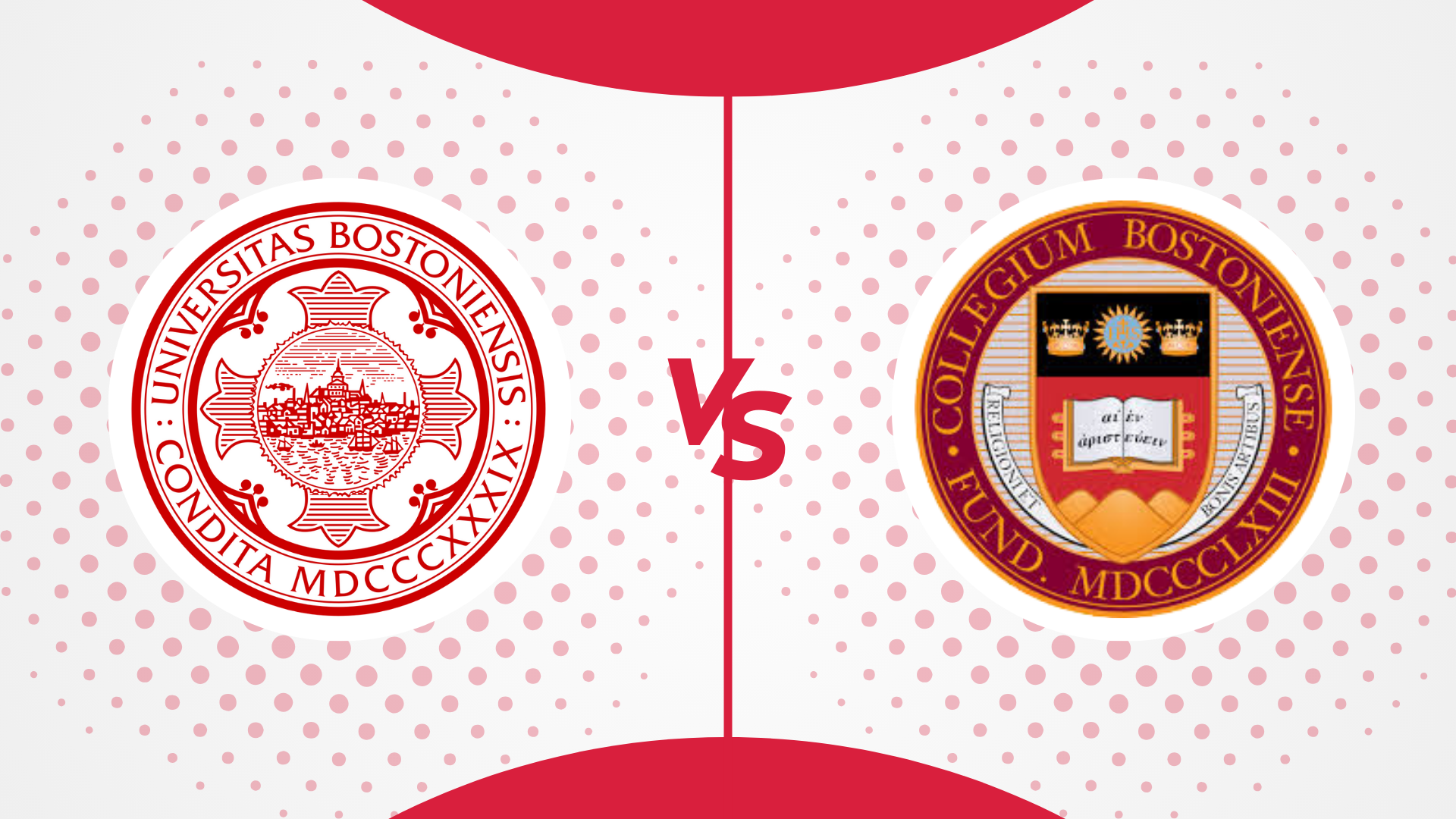
Compare more universities in USA
-
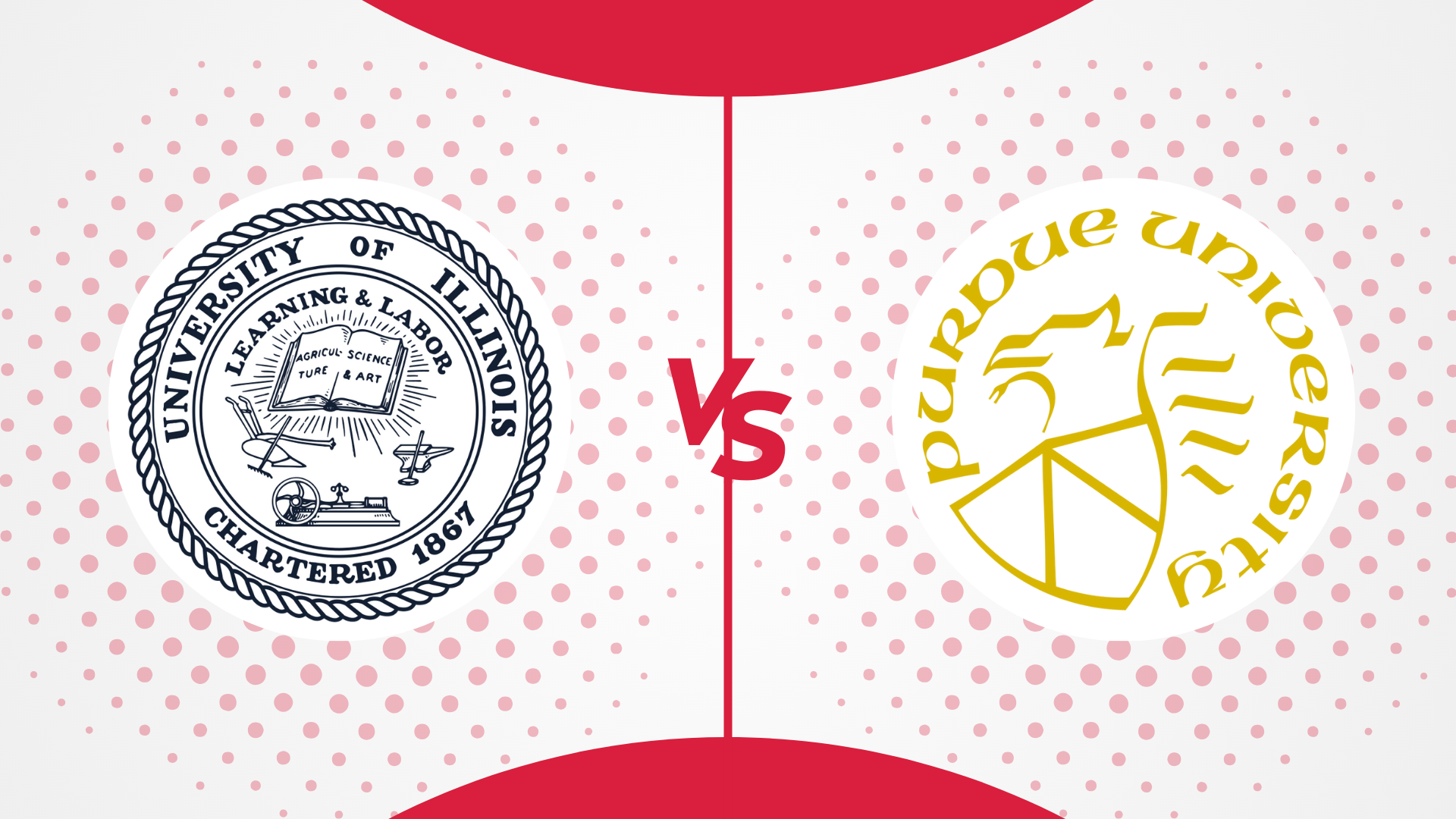
Purdue vs UIUC: How Do They Compare in 2025?
December 16, 2024 -
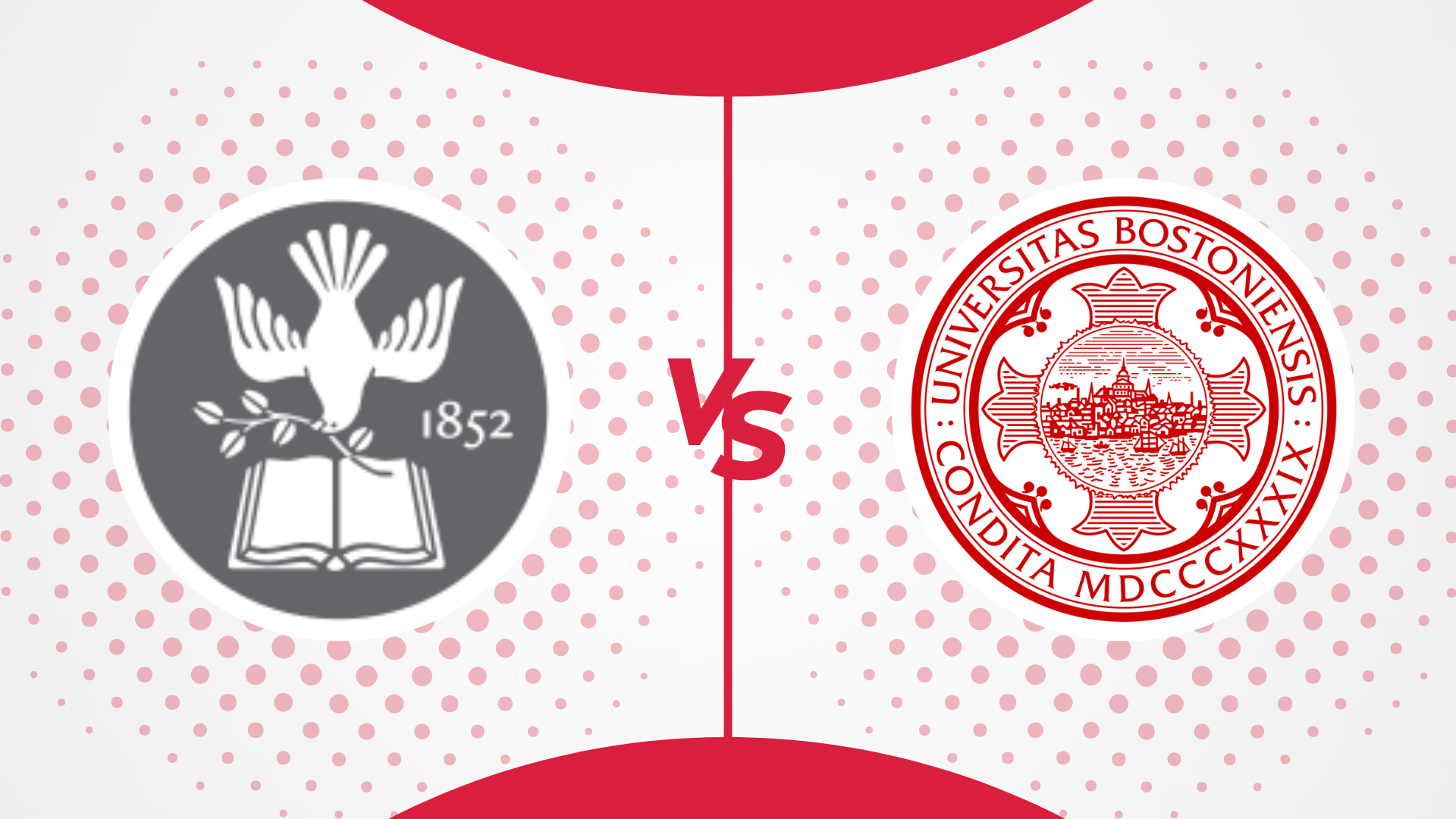
Tufts vs BU: How Do They Compare in 2025?
December 16, 2024 -

UIUC vs Georgia Tech: How Do They Compare in 2025?
December 3, 2024 -

Georgia Tech vs UT Austin: How Do They Compare? [2025]
September 24, 2024 -

UC Davis vs UC Irvine: How Do They Compare in 2024
September 10, 2024 -
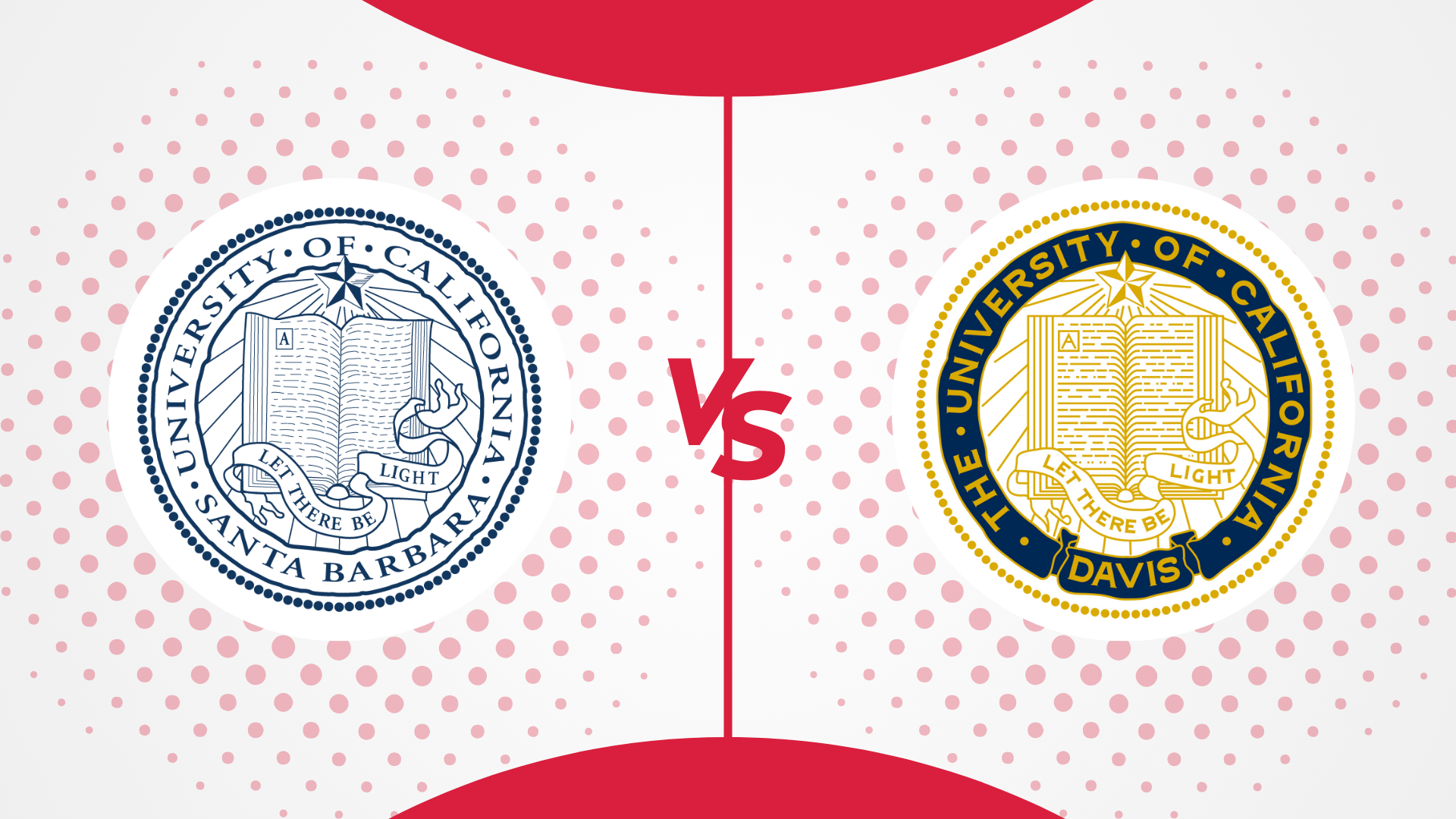
UC Santa Barbara vs UC Davis: How Do They Compare? [2024]
August 30, 2024 -
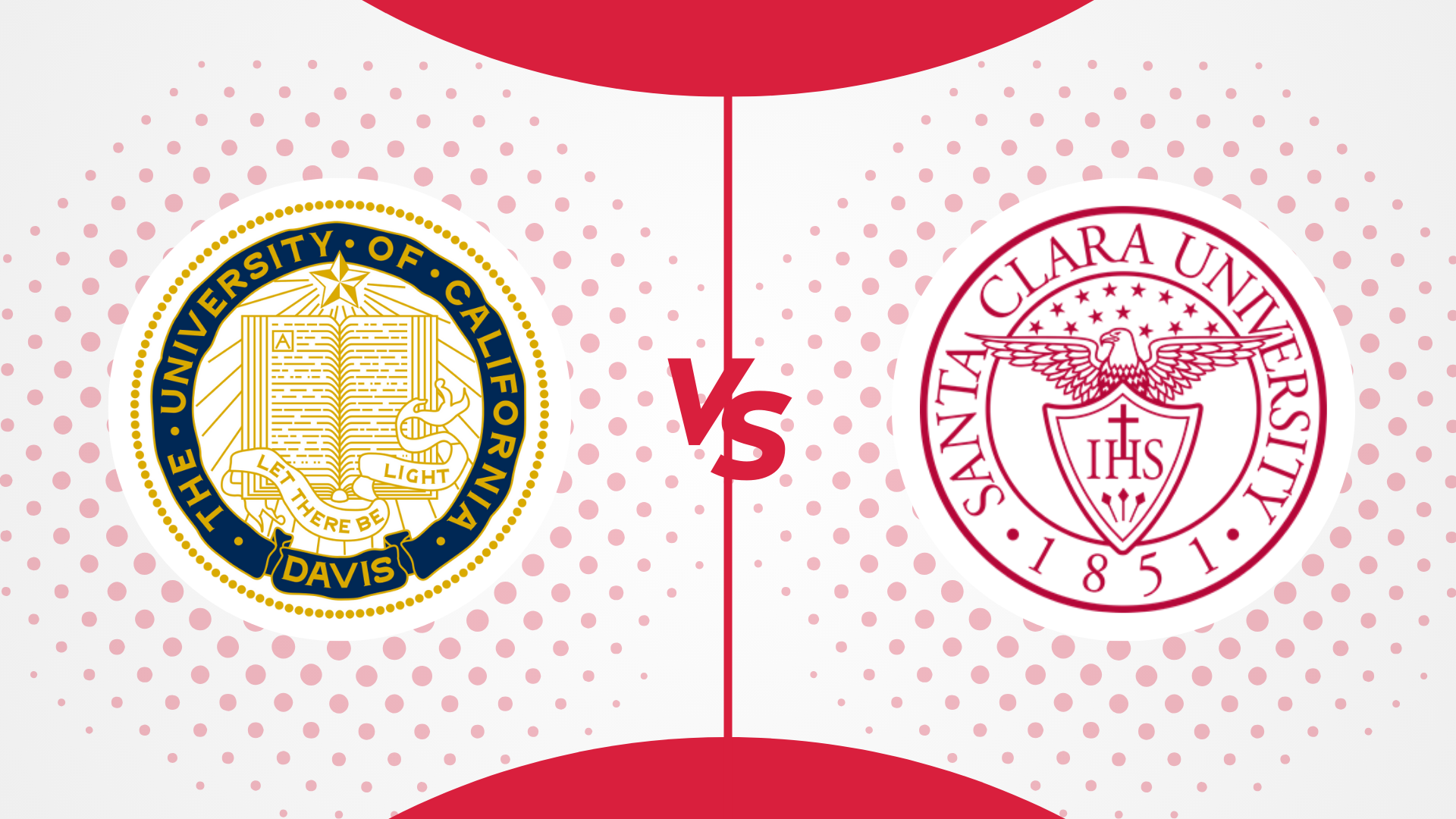
UC Davis vs Santa Clara University: How Do They Compare? [2024]
August 23, 2024 -

University of Chicago vs Northwestern University: How Do They Compare
August 20, 2024 -

Georgia Tech vs MIT: How Do They Compare? [2024]
August 7, 2024 -

Caltech vs MIT: How Do They Compare [2024]
August 2, 2024 -

MIT vs Harvard: How Do They Compare [2024]
July 27, 2024 -

Cornell vs Harvard: How Do They Compare? [2024]
July 27, 2024 -

Yale vs Harvard: How Do They Compare [2024]
July 22, 2024 -

Harvard vs Princeton: How Do They Compare [2024]
July 16, 2024 -
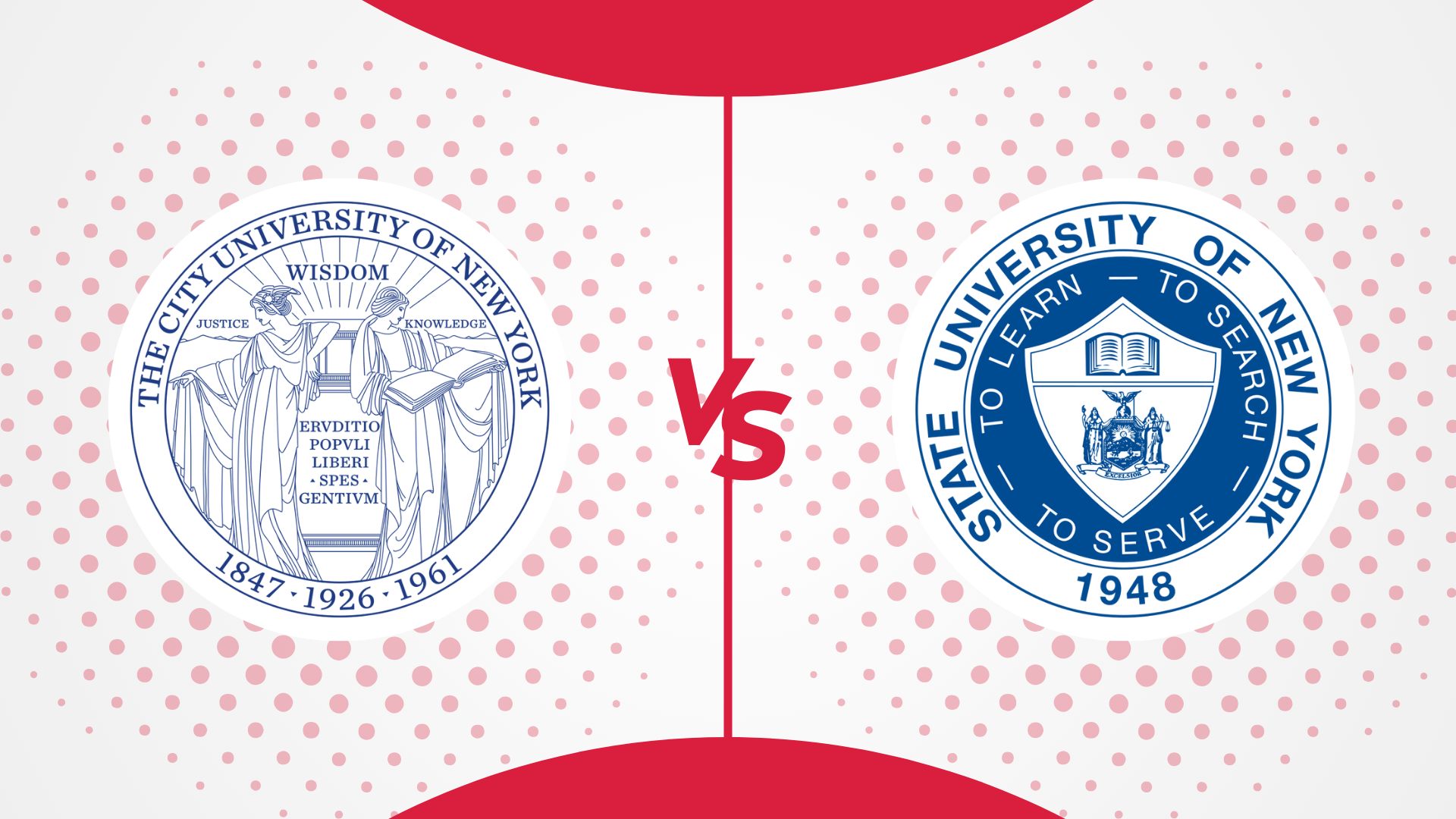
CUNY vs SUNY: Which One is For You in 2024
July 9, 2024 -
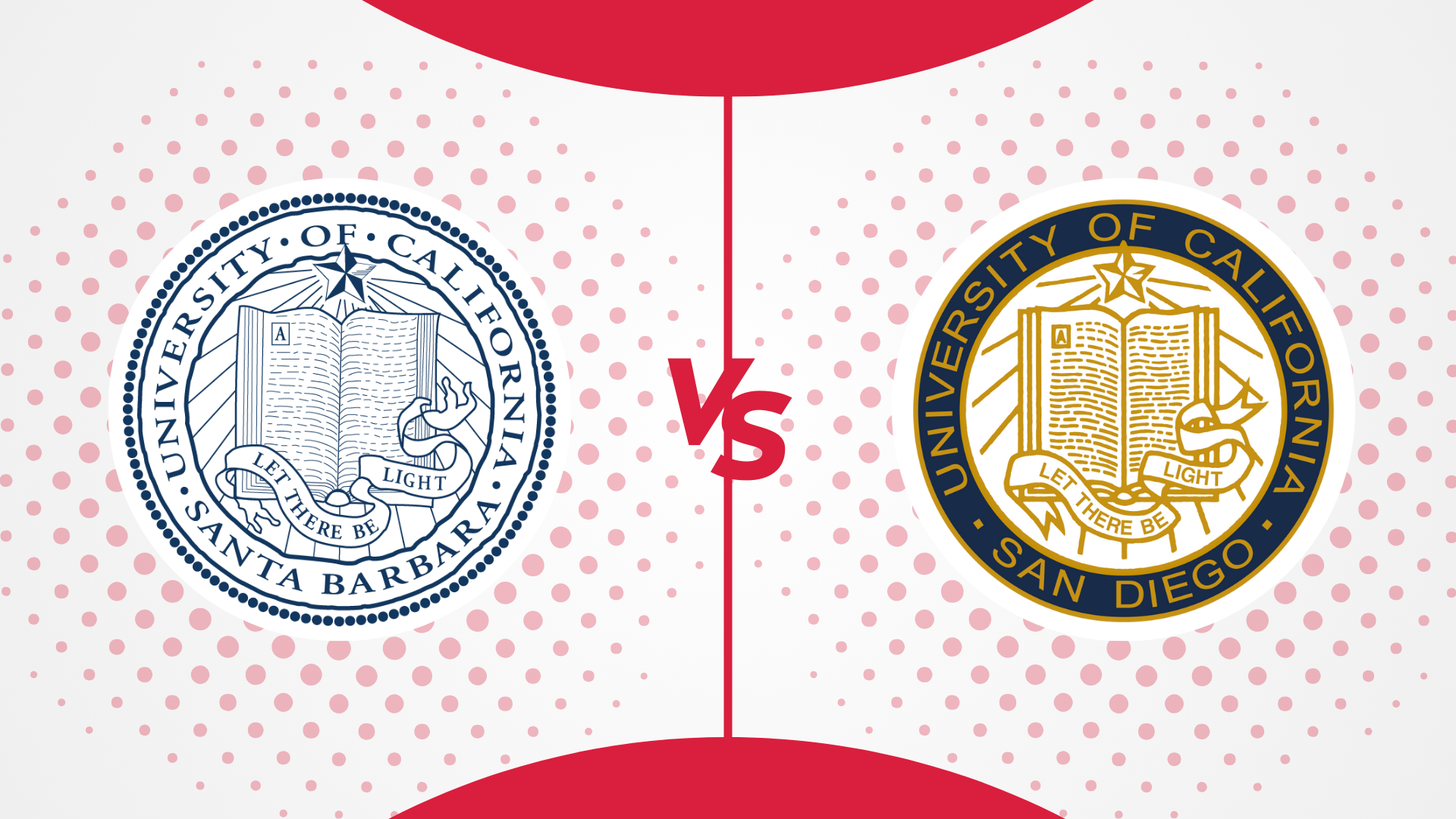
UCSD VS UCSB: Which One is Better For You in 2024
July 9, 2024 -

USD vs UCSD: Which one should you choose in 2024?
July 9, 2024 -
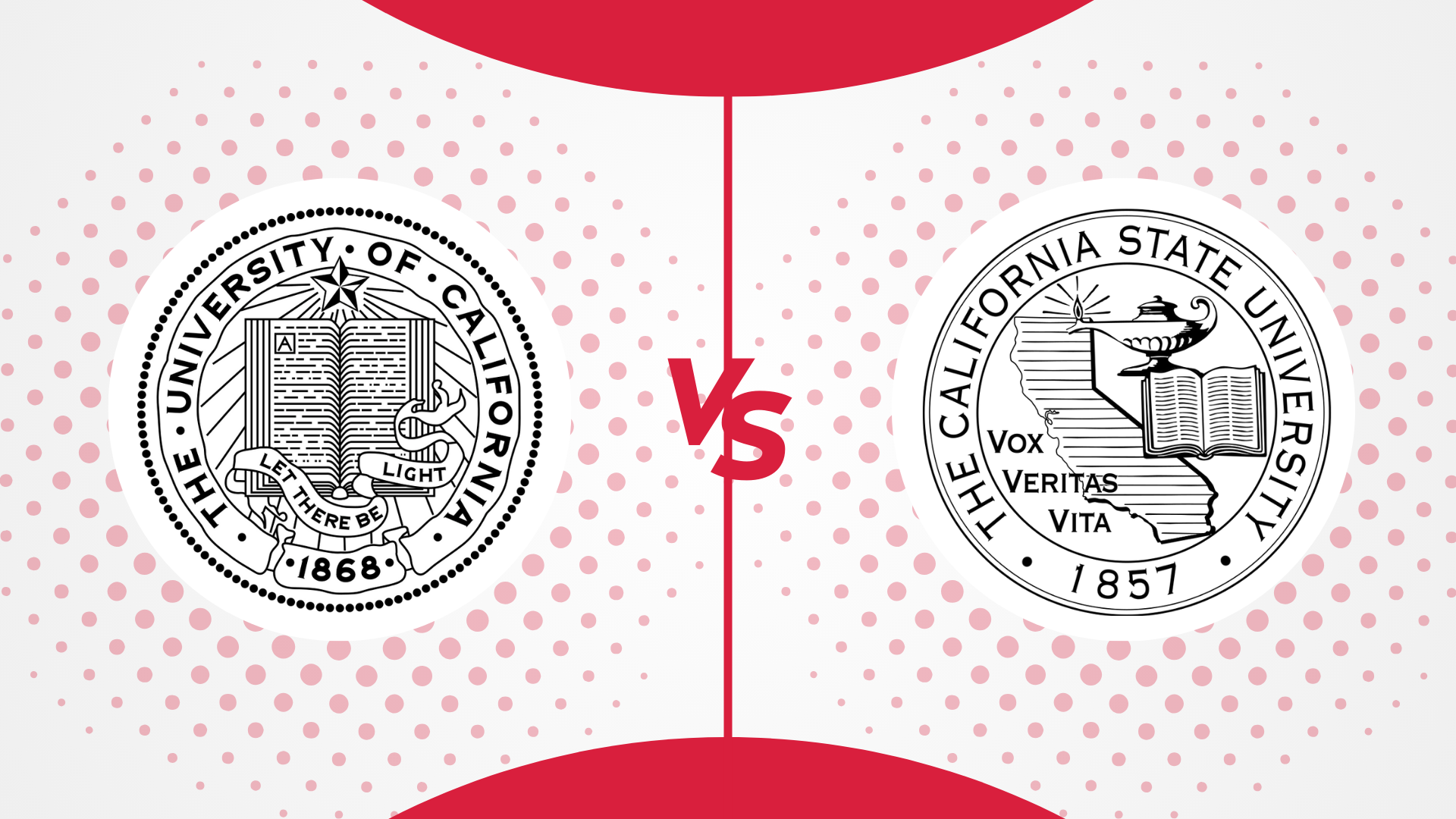
UC vs CSU: Which One is Better in 2024?
July 9, 2024 -

UCLA vs UC Berkeley: Which One is Best in 2024
July 9, 2024 -

University of Arizona vs Arizona State University: Which One is Better in 2024
July 9, 2024 -

Penn State vs UPenn: Which is Better for International Students in 2024
July 9, 2024 -

Northeastern vs Northwestern: Which One is Best in 2024
July 9, 2024 -

Northeastern University vs Purdue University – Which One is Better in 2024?
July 9, 2024 -

LSU vs UCLA: Which Is Better For You In 2024?
July 8, 2024 -

NYU vs Boston University: Which One Is Better For You In 2024
July 8, 2024 -

USC vs UCLA: Which One Is Better For You In 2024?
July 5, 2024 -
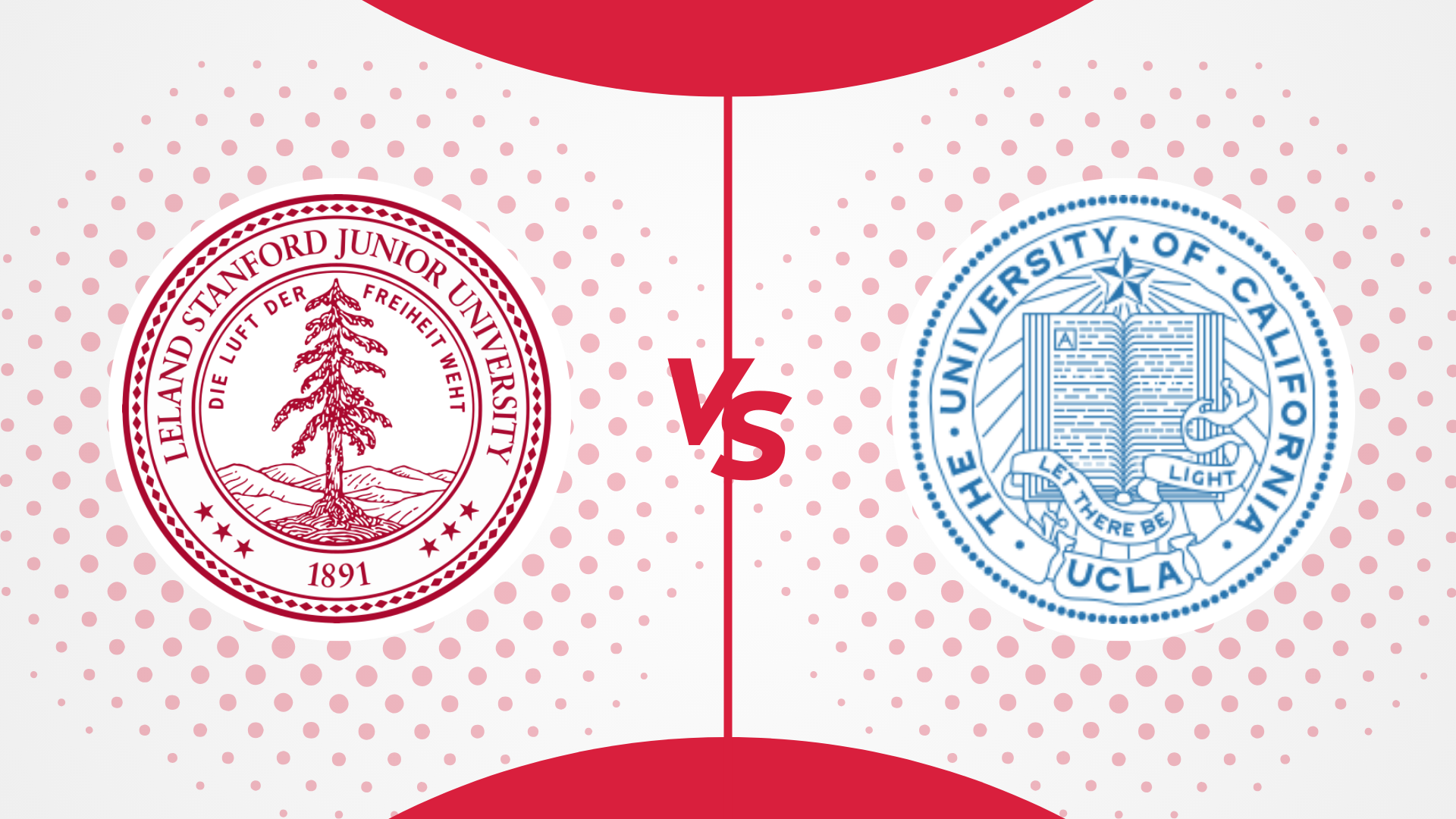
Stanford vs UCLA: Which One is Better For You in 2024
June 28, 2024 -

USC vs Stanford: Which One is Better For You in 2024
June 28, 2024 -
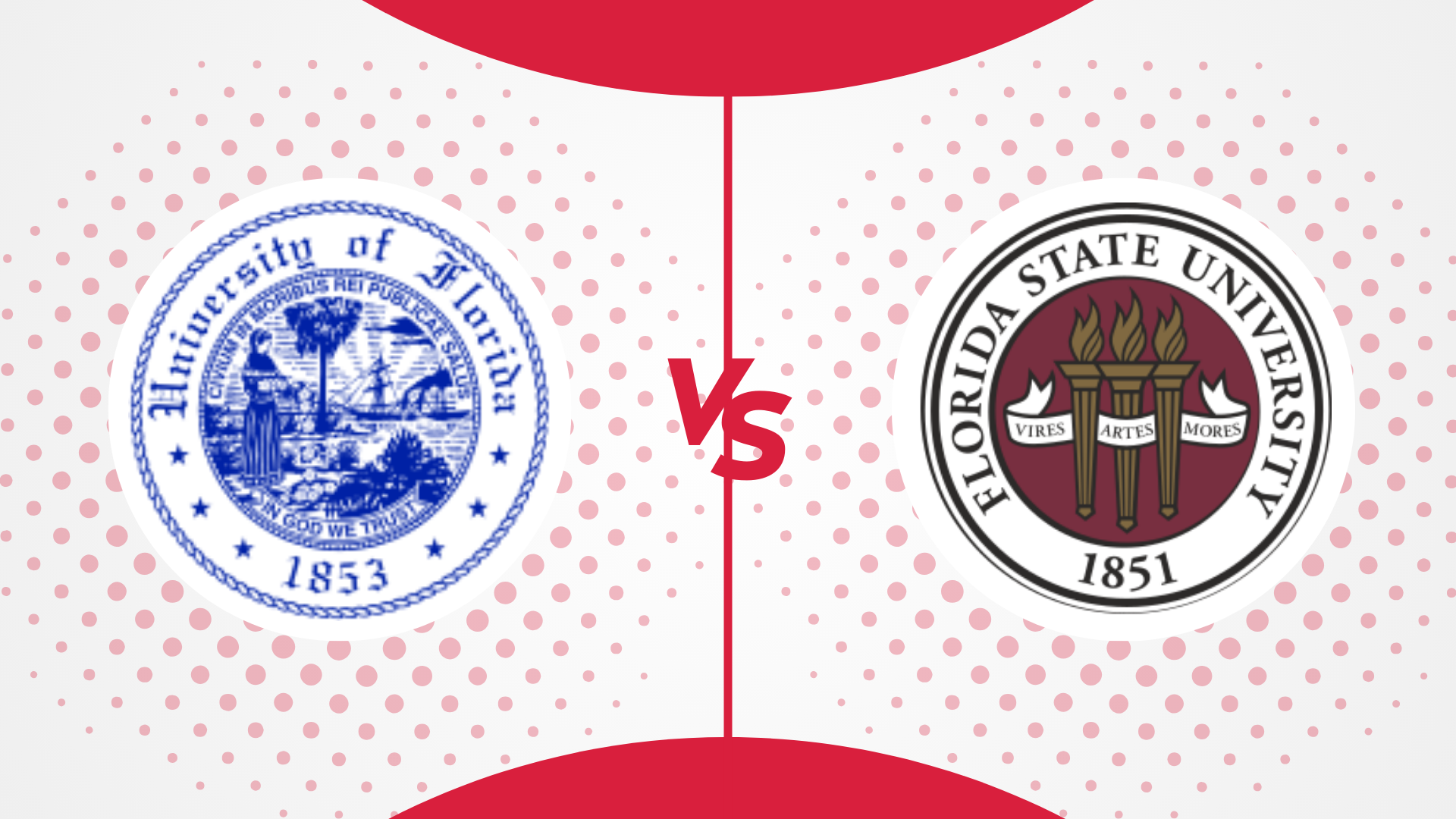
University of Florida vs Florida State University: Which One is Better For You in 2024
June 28, 2024 -

NYU vs Columbia: Which Is Better In 2024?
June 28, 2024 -

Princeton vs Columbia: Which Is Better In 2024?
June 28, 2024 -

NYU vs Cornell: Which One Is Better In 2024?
June 28, 2024 -

Boston University vs Northeastern: Which one is best in 2024
June 28, 2024 -

NYU vs UCLA: Which Is Better For You In 2024?
June 28, 2024














